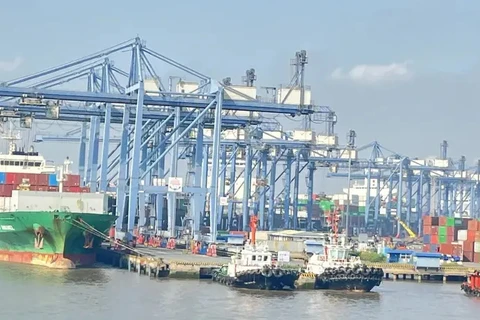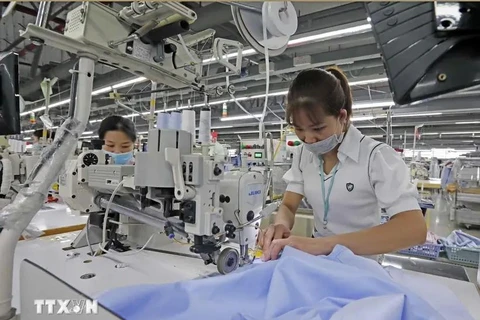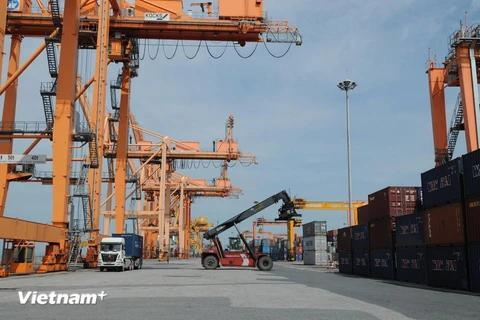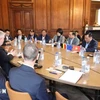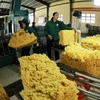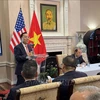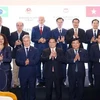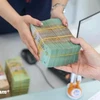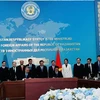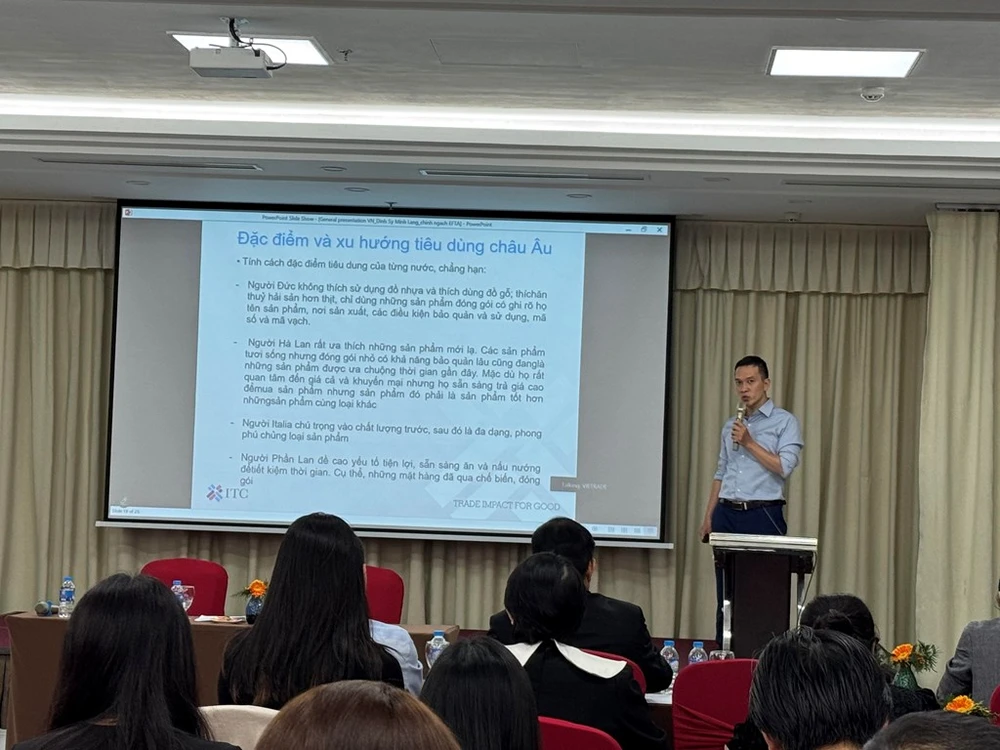
Hanoi (VNA) – The Vietnam Trade Promotion Agency under the Ministry of Industry and Trade (MoIT) on November 18 organised a seminar on promote trade in the European market, focusing on potential for expanding exports to the European market via official channels.
Speaking at the event, Dinh Sy Minh Lang, an official from the MoIT’s European-American Market Department, said that data from Vietnam Customs indicates that since the EU-Vietnam Free Trade Agreement (EVFTA) came into effect in August 2020, the European Union (EU) has emerged as a leading trade partner for Vietnam.
In the past four years, Vietnam’s export to the EU is estimated to exceed 200 billion USD, achieving an annual growth of 12–15%.
In July 2024 alone, Vietnam recorded a trade surplus of over 20.2 billion USD with the EU, a 19.4% increase compared to the same period in 2023. Its export turnover grew by approximately 16.8%, while imports rose by around 10%. The EU is now among Vietnam’s six largest import-export markets.
A survey by the European Chamber of Commerce in Vietnam (EuroCham) shows that the EVFTA has significantly boosted Vietnam's exports to the EU, from 35 billion EUR (36.9 billion USD ) in 2019 to over 48 billion EUR in 2023. Sectors such as electronics, textiles, footwear, agriculture, and seafood have particularly benefitted from the phased tariff reductions under this agreement.
Lang emphasised that formal export methods are more complex due to stricter documentation and higher taxes and fees, but ensure rigorous quality control. This approach enhances the reputation of Vietnamese enterprises and products in global markets.
Participation in official channels also allows businesses to access markets, particularly demanding markets and benefit from state support policies, thereby contributing to sustainable economic growth, he added.
To succeed in exports via official channels, businesses need to identify target markets, research standards and regulations, and assess their own capabilities to develop effective strategies, he suggested.
Moreover, they should adopt suitable standards for their products, build and maintain quality management systems, enhance employee skills, upgrade technology, and focus on producing high-quality goods that satisfy stringent export market demands.
Meanwhile, former Trade Counselor a the Vietnamese Embassy in the UK Nguyen Canh Cuong highlighted the opportunities provided by the UK-Vietnam Free Trade Agreement (UKVFTA), which eliminates over 99% of tariff lines within six years. Key beneficiaries include seafood, textiles, footwear, furniture, and processed agricultural products.
He suggested using digital marketing and artificial intelligence (AI) for entry into the UK market, as well as participating in international trade fairs and collaborating with trade support organisations.
He also advised businesses to align products with British consumer preferences by using recyclable and biodegradable materials, providing clear information on product composition and origin, and choosing neutral colours for packaging.
Nguyen Thanh Hung, a senior advisor to the Government, stressed the importance of minimising risks in cross-border transactions. Accordingly, businesses should verify information, proactively validate broker-supplied information through official channels such as industry associations or Vietnamese diplomatic missions in the buyer’s country.
Companies should engage directly with partners to avoid over-reliance on intermediaries, he said, adding in any transactions, they must draft contracts with clear and comprehensive terms to tightly bind all parties involved.
By adopting these strategies, Vietnamese enterprises can enhance their competitive edge in the European market while navigating the complexities of formal export processes, he noted./.
